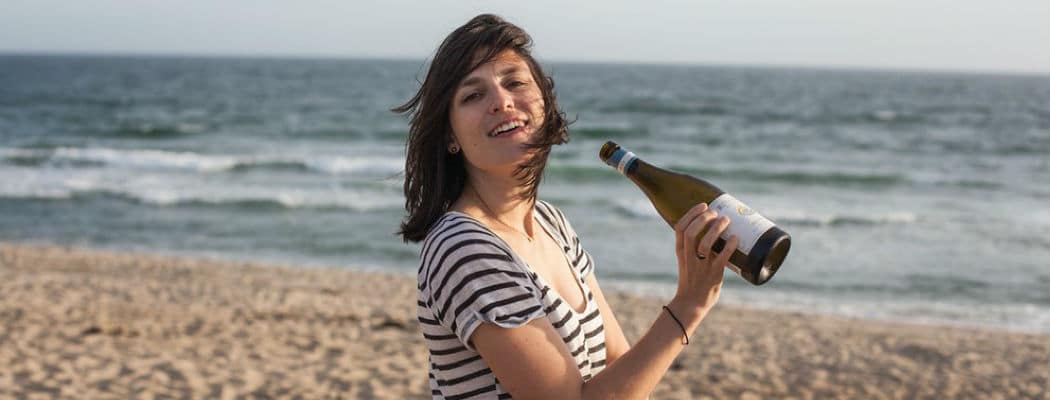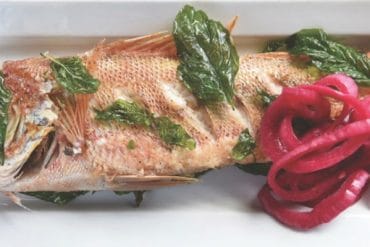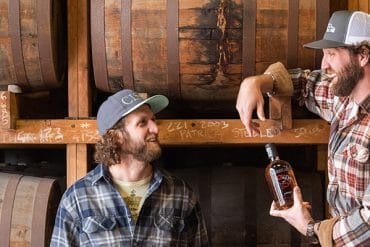Just in time for Wine Festival, Nantucket summer resident Bianca Bosker dishes on her top secrets from investigating the wine world.
 Two years ago, Cisco summer resident Bianca Bosker quit her job as the executive tech editor at the Huffington Post and went on an eighteen-month drinking binge. No, she didn’t fall into the grips of alcoholism, but rather dedicated her life, as she puts it “to pull back the curtain on parts of the wine world that no books, films, or TV shows had explored.” The fruit of her labors, a memoir entitled Cork Dork, hits shelves this spring and has already been lauded as the Kitchen Confidential of the wine world. N Magazine caught up with Bosker, who will also be featured at the Nantucket Book Festival this June, to prepare our palates for Wine Festival.
Two years ago, Cisco summer resident Bianca Bosker quit her job as the executive tech editor at the Huffington Post and went on an eighteen-month drinking binge. No, she didn’t fall into the grips of alcoholism, but rather dedicated her life, as she puts it “to pull back the curtain on parts of the wine world that no books, films, or TV shows had explored.” The fruit of her labors, a memoir entitled Cork Dork, hits shelves this spring and has already been lauded as the Kitchen Confidential of the wine world. N Magazine caught up with Bosker, who will also be featured at the Nantucket Book Festival this June, to prepare our palates for Wine Festival.
N MAGAZINE: What were some of your methods in researching this book?
BOSKER: I gave myself a year to pass a sommelier exam that recommends a minimum of three years in the industry, which means I turned my life upside down in my journey to train my senses. I gave up perfume, scented laundry detergent, any liquids above a lukewarm temperature, coffee, spicy foods, adding salt, and brushing my teeth except at select times. I replaced gargling Listerine with tasting dozens of dilutions of citric acid mixed with water. A neuroscientist explained to me that if you imprint a taste while, well, being intimate with someone, it will be more likely to stick in your memory. And if you want to know more… well you’re just going to have to read the book.
N MAGAZINE: So it’s all about training your memory?
BOSKER: Appreciating the complexity of wine means improving our sense memory, building up a library of flavors and aromas that we can then recognize in a glass. Gnawing on rocks became a pastime. I’ve tasted more than my fair share of dirt. It’s surprisingly delectable.
N MAGAZINE: Obviously a lot of tasting went into researching this book. Did you pick up any miracle hangover cures along the way?
BOSKER: A word to the wise: When you tell your friends and family that you’ve quit your stable job to drink wine, you’ll start getting very concerned phone calls. In my quest to train my palate and work as a somm, I was drinking most weekday mornings, tipsy by noon, and painfully hungover by 2 pm most days. Cheeseburgers were the closest I came to hangover therapy, though really they just dulled the pain. Some somms swore by detox tea. My favorite hangover advice came from an aspiring Master Sommelier who was my mentor. As he put it: “Being relentless is my defense.”
 N MAGAZINE: What are some good questions to ask when a somm is trying to up sell you on a bottle? How do you not get taken for a ride?
N MAGAZINE: What are some good questions to ask when a somm is trying to up sell you on a bottle? How do you not get taken for a ride?
BOSKER: I apprenticed in Michelin-starred dining rooms as part of my sommelier training, and I was impressed to discover that restaurants are judging you just as much as you’re judging them. The top restaurants aim to Google all their guests before they come in, and keep detailed notes on their likes, dislikes, tantrums, importance to the restaurant, and so forth, so they know how to treat them. Spend handsomely on wine, and you might be labeled a “Wine PX,” short for “personne extraordinaire.” Get huffy, and you just might be labeled, “HWC,” short for “handle with care.” Other somms and servers study jewelry or luxury watches to gauge your potential price range. Sure, there’s a profit motive at play. But the best sommeliers use all this information and more to read what you want emotionally out of your meal, so they can provide that along with a wine. You’re being watched and analyzed more closely than you realize. The best way not to get taken for a ride? Just be open, honest, and clear about what you want to drink and spend.
N MAGAZINE: What’s one secret that most consumers don’t know when ordering wine?
BOSKER: In the course of working as a cellar rat, I quickly learned to read the hidden language of wine lists. For instance, most “by the glass” lists have what somms call “gimme wines.” These are the well-known regions or grapes, like New Zealand Sauvignon Blanc, or California Cabernet, that guests instantly recognize and say, “Give it to me — I don’t care how much it costs.” If you order a gimme wine, you will pay a gimme tax. Restaurants know they can charge more for the “gimmes” because many people go on autopilot and order the safe, well-known thing, regardless of price. For your best shot at drinking great wine for good value, try something offbeat from the grape you’ve never heard of, or the region you can’t pronounce. Those bottles don’t usually sell as easily, and they’re there because someone loves them.
N MAGAZINE: What are the top gimmicks in the wine industry today?
BOSKER: Perhaps it’s in my nature as a writer to be picky about words, but I take issue with the language of wine — in particular the terms “terroir” and “minerality,” which liberally pepper winespeak. Not even industry professionals can agree what “terroir” and “minerality” mean exactly, or how to taste them in a wine. So how can we expect amateur drinkers to make sense of them? To me, these words are symptomatic of the hand-waving that sometimes takes over with wine — marketing takes precedence over meaning — and I fear that lack of specificity can alienate people who’d otherwise love wine.
N MAGAZINE: You’re invited to a dinner party and have $20 to wow your host with a bottle of wine; what are you picking up and why?
BOSKER: I’d pick up a bottle of Sauternes, a sweet wine from Bordeaux. Some of the best, most expensive wines in the world are from Sauternes, but it’s also fallen out of favor, partially because drinkers have a tendency to snub sweet wines. To me, it’s a special treat that too many people haven’t explored, and Sauternes age beautifully, meaning you can track down ten-, twenty-, or even thirty-year-old bottles without breaking the bank. Plus, though you don’t have to drink it with dessert, it’s the perfect wine to bring out at the end of a meal, to encourage everyone to linger just a little longer.
 N MAGAZINE: After all you experienced, what’s your philosophy on wine?
N MAGAZINE: After all you experienced, what’s your philosophy on wine?
BOSKER: The best wines, regardless of pedigree, come with a story. Or it could be the story about the experience catalyzed by the bottle. Whereas before, the only thing I got from a glass of wine was drunk, now I can appreciate wine on an emotional and intellectual level, and the stories in each glass reveal themselves more readily now than they ever did before.






